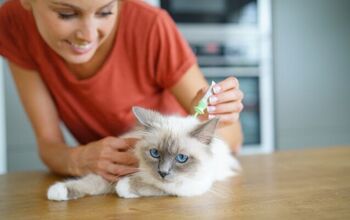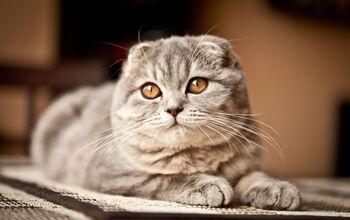Chubby Kitties Are Helping Study Obesity in People

Chubby kitties might be as cute as it gets, but that doesn’t mean that their extra fluff isn’t leaving a mark on their health. Coincidentally, it seems that the effect obesity has on feline health can be compared to humans dealing with the same condition – a recent scientific study claims that fat cats can help researchers better understand the way gut bacteria influence conditions like obesity and type 2 diabetes.
The study focused on food-related changes in the gut microbiome of chubby cats. The results showed that there are striking similarities in the way diet affects the gut of humans. The study’s results were published in the journal Scientific Reports, and are revolutionary in many ways. In fact, the researchers say that it is cats that could be the ideal source of information about the human microbiome, and whether changes in gut bacteria can help fight obesity.
“Being able to see changes in cats that come up in the context of obesity and type 2 diabetes in people makes them a really good model to start looking at more microbiome-directed therapeutics for obesity in humans if we’re seeing a similar shift,” said lead researcher Dr. Jenessa Weston, an assistant professor of veterinary clinical sciences at Ohio State University.
“Animals share our beds. They share our ice cream. There are all these things that people do with their pets that highlight they are a naturally occurring disease model with similar environmental exposures as humans,” she added.
During the course of the study, the scientific team fed seven obese cats a specially crafted diet for 16 weeks. Gradually, the diet progressed: from free-feeding of commercial cat food to feeding a special weight-loss diet, and finally to a calorie-restricted feeding on the special weight-loss food.
It was subsequently discovered that a short-chain fatty acid, called propionic, increased significantly in fecal samples of cats who were losing weight on the calorie-restricted diet. It was shown that propionic acid can help regulate appetite in other mammals, and reduce fat accumulation, as well as protect against obesity and diabetes.
The team concluded that the increase in propionic acid was connected to the increase in the gut bacterium Prevotella Copri.
“When the cats are on the special diet formulated for weight loss, propionic acid goes up and stays high, and then goes back down when they’re put back on the maintenance diet. So, it really is a dietary change,” Winston said.
“This paper highlights that when we calorie-restrict cats that are obese, we can alter their microbial ecosystem - and those community shifts that we see likely correlate with some metabolic outcomes,” she added.
What these results show is that the observed changes in the gut bacteria of fat cats can provide important insights into how diet affects the human gut microbiome.
“Microbes we saw in this study also come up again and again in human studies - and clearly, people aren’t eating cat chow, right?” she said.

A proud mama to seven dogs and ten cats, Angela spends her days writing for her fellow pet parents and pampering her furballs, all of whom are rescues. When she's not gushing over her adorable cats or playing with her dogs, she can be found curled up with a good fantasy book.
More by Angela Vuckovic























